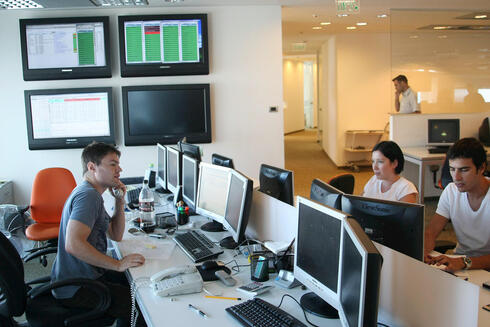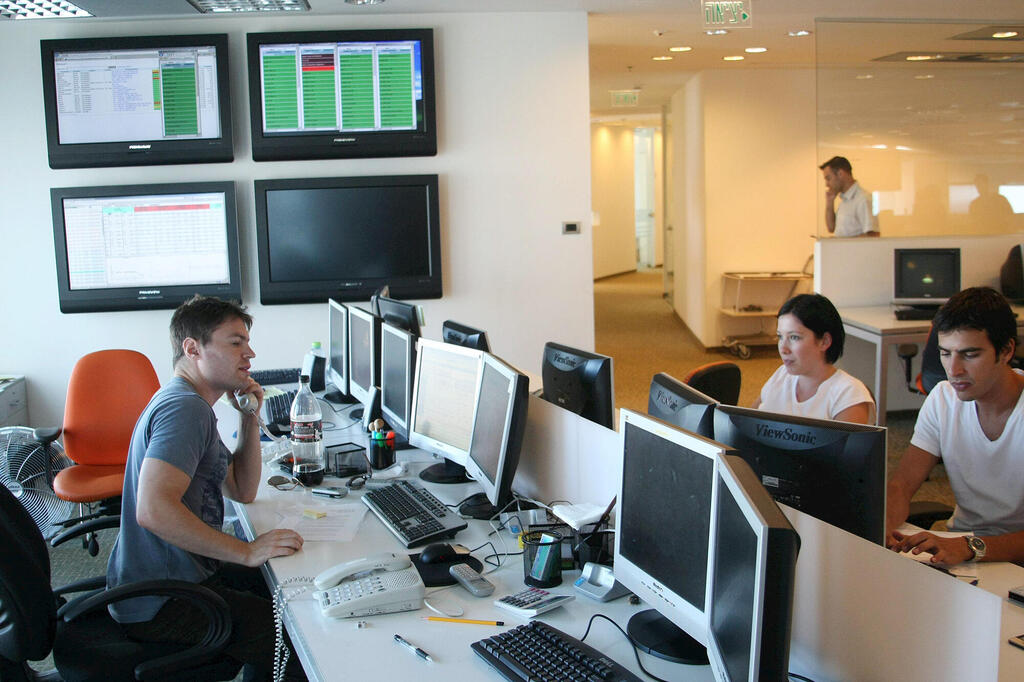
From DevOps to front-end - a guide to high-tech’s most wanted jobs
Ever wondered what a Big Data architect does all day? How about an information assurance analyst? CTech is here to help with a glossary of some of the most sought-after professions in tech
The high-tech sector constantly creates an ever increasing number of roles, professions and areas of expertise, but many of them sound like complete gibberish to anyone who isn’t deeply involved in the ecosystem.
The following list attempts to explain as simply as possible the meaning and significance of many of these roles.
Application security administrator
The person responsible for identifying failures in the security of the organization's products and its developments, as well as advising on ways to solve them. Works in collaboration with engineering teams in order to constantly improve the security level of the software. In most cases, employers will be looking for someone who understands a thing or two about app development processes and is aware of the challenges faced by the teams involved. This is a senior position where experience and knowledge are of great importance.
Artificial intelligence security specialist
An expert in artificial intelligence security is one of the most desirable positions in high-tech today, however, not everyone can be one. In order to become an expert in a serious organization, a huge amount of combined knowledge in engineering and computer science is required, as they need a very high level of knowledge and skills in order to create reliable protection systems for machines or software that can "think for themselves".
Back-end developer
This position in a hardware company involves converting code into design of a circuit or chip in preparation for their production - that is, they are a major factor in the design and production of chips. In a software company, they are responsible for developing web applications on the server side, including writing the interfaces - which requires various programming languages, including Python, Java and Ruby. This is a full-time engineering job with, for the most part, quite a few trips abroad.
Big Data architect
A data architect, like a structure architect, describes what the data environment and its structure should look like. The data engineer uses the information they are given to build the environment. Broadly speaking, these are people whose job it is to put data in order. Without them, vast amounts of business data is useless.
Business systems analyst
The business systems analyst specializes in drawing conclusions and formulating business insights based on the processing and analysis of information. Based on the conclusions, the organization makes decisions.
Business intelligence specialist
A business intelligence expert, or a business intelligence analyst, knows how to fish for qualified information, identify market trends and create tools for locating and monitoring necessary information. This is a very senior job, with a high salary (typically almost twice that of a business systems analyst).
Cloud architect
The cloud architect is responsible for converting the technical requirements of any project into the architecture and design of the final product. In the process, they bridge gaps between business problems and solutions in the cloud environment - the server on which the organization's activities are actually carried out, which is far away from the base of operations. They work closely with DevOps leaders in order to make sure that the technologies that are built are suitable for the environment in which they are supposed to operate.
Cloud developer
Software engineer with a specific specialization in cloud computing. One who knows how to both program and connect to a cloud environment effectively and safely.
Cloud engineer
An IT (information technology) expert who builds and maintains cloud structures.
Cloud system administrator
The cloud system administrator develops, maintains and solves problems in the network connections of the cloud computing resources in the organization.
Database administrator
The database manager uses dedicated software to store and organize information in the organization. They are responsible, among other things, for planning, implementing, decoding, security and problem solving in everything related to information.
Data quality manager
The role of the data quality manager is to ensure that the information on which the organization is based is "quality" - that is, it meets high standards with regard to its collection and may contribute to the growth and success of the organization.
Data analyst
The data analyst reviews raw data and extracts insights about the organization's customers and ways in which the information can be used to solve various problems. As part of the role, the information analyst conveys the data collected to the organization's management and shareholders.
Data analytics developer
The data analytics developer provides the organization with the software with which accurate data analytics can be conducted.
Data scientist
The data scientist works closely with the shareholders in the organization in order to understand their goals and decide what information the organization needs to help achieve them. These high-tech employees design information flow processes and build different algorithms and models in order to extract the information the company needs and then helps management decipher it.
DevOps engineer
DevOps is essentially an organizational culture that emphasizes collaboration and communication between the software developers and the rest of the IT personnel in the company, with a constant preference for automation. The goal is to speed up and optimize processes when it comes to software development, and in the process strengthen its reliability and stability. That is, to integrate as holistically as possible between the programming department and the information technology department. The role of the DevOps engineer is to develop tools and methodologies to balance the different needs of each of the parties throughout the software development life cycle. These tools can be codes, updates, and monitoring and maintenance tools.
Enterprise architect
The person responsible for the continuous operation and maintenance of the technologies in the organization, as well as the services it provides and receives. The purpose is to anticipate, improve and upgrade the company's services, software and hardware. This is a senior position that carries a lot of responsibility, and that is the reason it is at the top of the ranking of the highest paying high-tech positions.
Front-end developer
A front-end developer builds websites and applications using web languages such as Java, HTML and CSS.
IT coordinator
Information technology and computer maintenance expert who helps organizations operate the computers and internal communication systems.
IT systems architect
A professional in the field of information technologies and communication networks leading the development and implementation of computer systems in the corporate network.
IT security engineer
The role of the IT security engineer is to take care of the ongoing operation of the corporate systems, to fix bugs and problems and to respond to security incidents in real time.
Information assurance analyst
A senior employee who carries out a variety of roles related to the integration of changes in software systems. Their main responsibility concerns cybersecurity risks and adapting the software to deal with those risks.
Network architect
The network architect designs LAN and WAN systems used to transmit information, including intra-organizational communication systems.
Network administrator
Responsible for the maintenance of the organization's communication systems.
Platform engineer
A software engineer who specializes in creating platforms, tools and interfaces that can be used in various ways.
Product manager
The product manager should identify the customer's needs and adapt the organization's goals to them. Among other things, they define in advance what the success of the product should look like and lead a team that makes the vision a reality.
Reliability engineer
The reliability engineer is involved in assessing the probability of failures, preventing failures, improving safety, reliability, and maintaining a product or system. For this purpose, they use software that promises reliability.
Software quality assurance analyst
The person in the organization responsible for formulating quality principles and standards during software development, who accompanies the process and outlines its character.
Service desk analyst
An employee whose role it is to provide technical support to the company's customers and employees.
Technical product manager
A product manager with a rich technical background, who focuses on managing the technical side of product development.
UI designer
The UI designer is responsible for designing all pages related to the user interface, including the individual elements that appear on those pages. They make sure that each individual screen looks good and that all the pages fit together into a nice interface.
UX designer
The role of a UX designer is to make a product or service easy to use, enjoyable and accessible. In short, make the user experience as good as possible.
Web developer
A person who creates and maintains websites.













